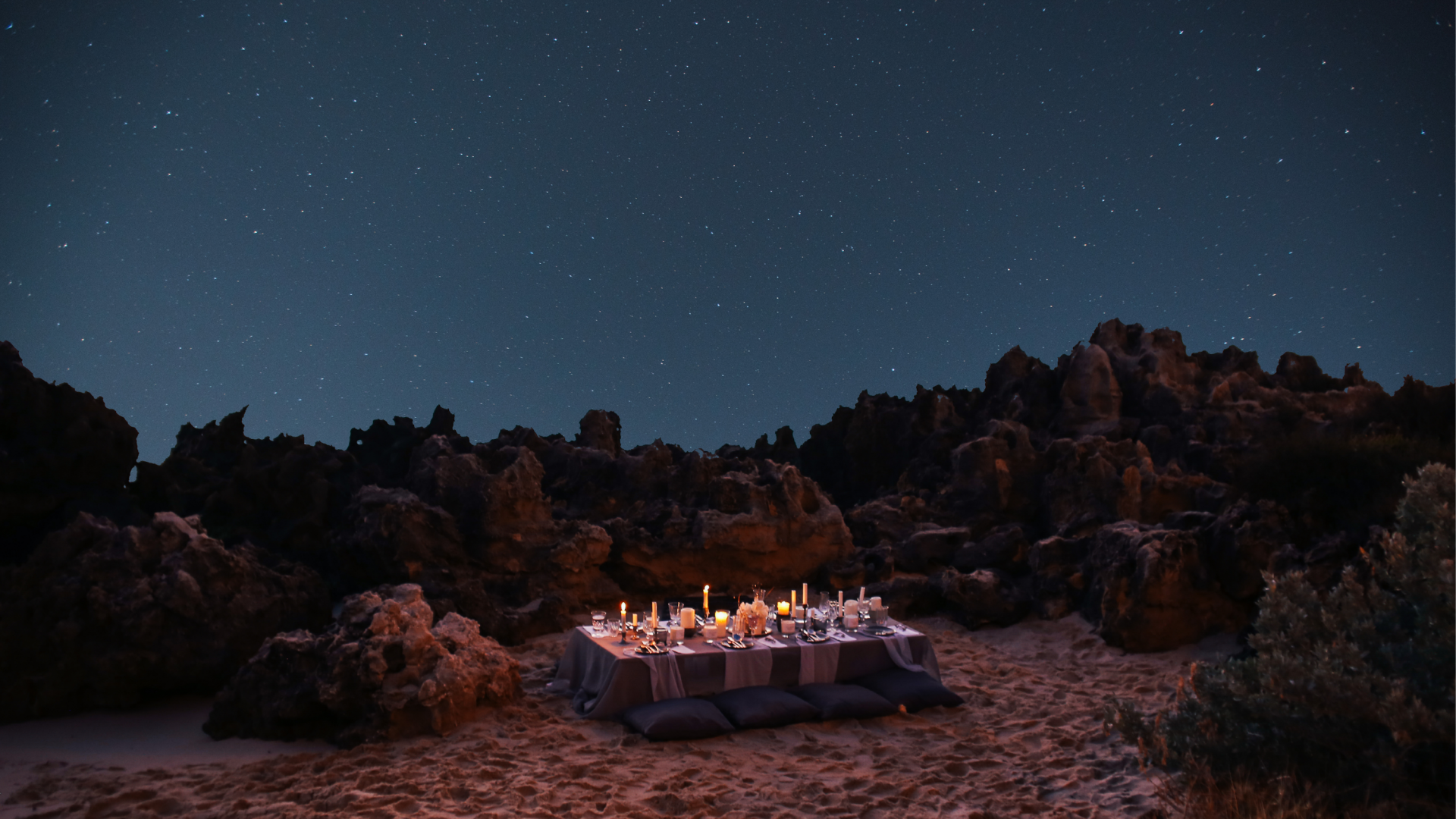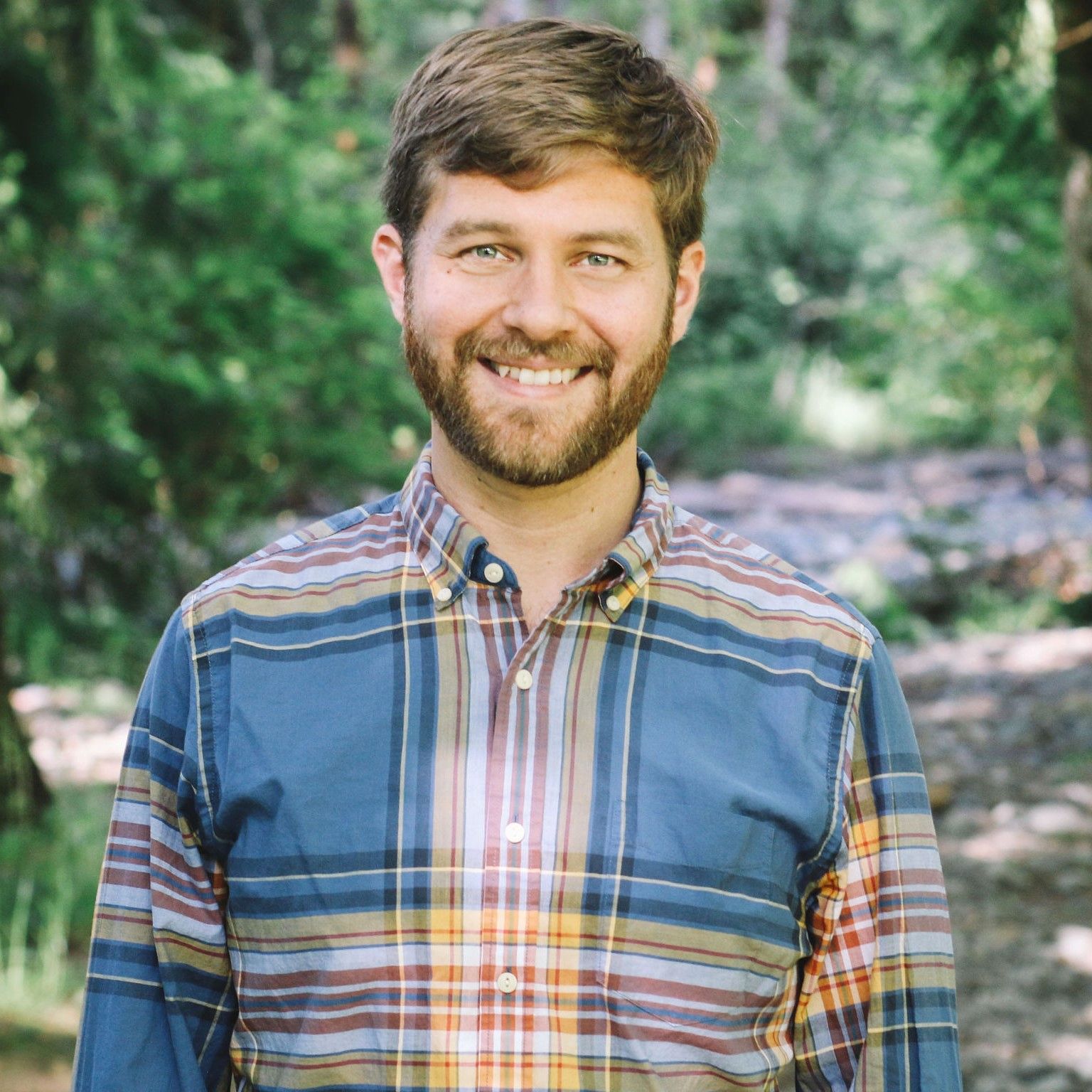A Table in the Wilderness

Unfortunately, life does not come with signs telling us we’re about to enter the wilderness. No warning about how long it will last. No fuel gauge to let us know our inner stores. We simply go through our days until we find ourselves running low on joy and at the end of hope—a wilderness season of life.
—
On New Year’s Day of 2020, I spent some time journaling and reflecting on the past decade. The 2010s held my college years, marriage, a cross-country move, and graduate school, among other things. Three particular events emerged as I reflected on the decade.
It began with a difficult college semester. The end of a long-term relationship, along with two close friends moving away for the semester, left me in a strange new social landscape where I had to find my own way forward and forge new community.
Halfway through the decade, just after moving across the country, I went through a divorce, drawing me into a deeper kind of loneliness than I’d ever known, forcing me to face my innate fear of abandonment and constant inner messages of shame.
In the decade’s final year, my mother spent a harrowing week in the hospital as her lungs began giving out, and the rest of her body slowly followed suit. I was there for every twist and turn, each day holding a new bit of hope along with a newer complication. I kept vigil by her bedside through the night, which would end up being her final hours. Family and friends gathered around to bid farewell through sobs and tears. This was an altogether new kind of grief.
These three memories were moments of deep grief, tragedy, and trauma. But as they emerged, I also sensed them as crucial moments of transformation, growth, and deep hope. This decade taught me that as we encounter measures of grief deeper than we’ve ever known, we also have the potential to discover stores of hope deeper than we ever thought possible.
The heart of the wilderness holds an unexpected table.
—
This is a truth that I see emerge through the stories of scripture. A few come to mind.I think of Hagar, an enslaved person in the household of Abram and Sarai, who is used as a surrogate for their child only to be further mistreated, causing her to flee to the desert. Hagar is in all kinds of wildernesses. She is in a wilderness of slavery—without agency; a wilderness of physical and emotional abuse—without dignity; and the wilderness of desert—without safety or provision. It looks like everything is over. But suddenly—in the middle of the desert—the angel of the Lord appears to her, calls her by name, and speaks to her of a blessed future. I can hardly imagine what this was like for Hagar. But the text of scripture tells us, “She gave this name to the Lord who spoke to her: ‘You are the God who sees me,’ for she said, ‘I have now seen the One who sees me.’” (Genesis 16:13) What an amazing and unexpected encounter! In the middle of many wildernesses, Hagar is seated at the table of The God Who Sees Her!
I think of Moses, who is born as a Hebrew but grows up in the Egyptian palace. After witnessing the oppression of his people, he murders one of the abusers and flees for his life into the desert. Moses also inhabits multiple wildernesses. He is in a wilderness of identity—belonging to an oppressed people but living among the privileged; a wilderness of rage and fury which led to fear and shame; the wilderness of desert, as he flees. But it is precisely in the middle of this desert that he encounters a burning bush, and God speaks to him, “I am the God of your father, the God of Abraham, the God of Isaac and the God of Jacob… I AM WHO I AM.” (Genesis 3:6,14) In the middle of the wilderness, Moses is seated at the table of God’s glory in the burning bush.
I think of Elijah, a prophet of God who, after a victorious show of power before the prophets of Baal, is being hunted down by corrupt people of power. So he flees to the desert, where he travels for forty days and nights until taking refuge in a cave. Elijah is in a wilderness of loneliness and depression; a wilderness of fear, as he is pursued by authorities; the wilderness of a desert mountain cave, where he seeks rest and reassurance. And it is here where Elijah encounters a powerful wind, a mighty earthquake, and a raging fire, but the story tells us that God is actually in none of these things. After all the noise fades, there is a gentle whisper, a still small voice, a sheer silence—this is the presence of God. (1 Kings 19:11-12) In the middle of the wilderness of a mountain cave, Elijah is seated at the table of God’s gentle yet reassuring presence.
—
These stories are startling and unexpected. They are stories of very real trauma, fear, and despair. But they are also stories of real hope, rescue, and reassurance.
Can you recall a season of wilderness in your life? Are you in the midst of one now?
Might there be a table in the wilderness of God’s abundant provision and presence?
May you find God’s table in the midst of your wilderness. May you be a table in the wilderness for others.

Drew Dixon
Drew Dixon is a minister and spiritual director in Auburn, WA who longs to serve and support people in the way of Christ through teaching, spiritual formation, and pastoral care.
Drew currently serves at the Federal Way Church of Christ where he regularly preaches, creates spiritual resources, and provides care to the congregation. He also facilitates listening spaces for individuals and community through individual and group spiritual direction and as a coordinator with Renovaré’s Fellowship of the Burning Heart.
During his downtime, Drew enjoys slow mornings, scenic walks, deep conversations, watching films, reading fantasy, history, and spiritual writings, and spending time with his wife, Katelyn. You can learn more about him on his website at https://drewldixon.com.
Facebook
Twitter
Instagram

